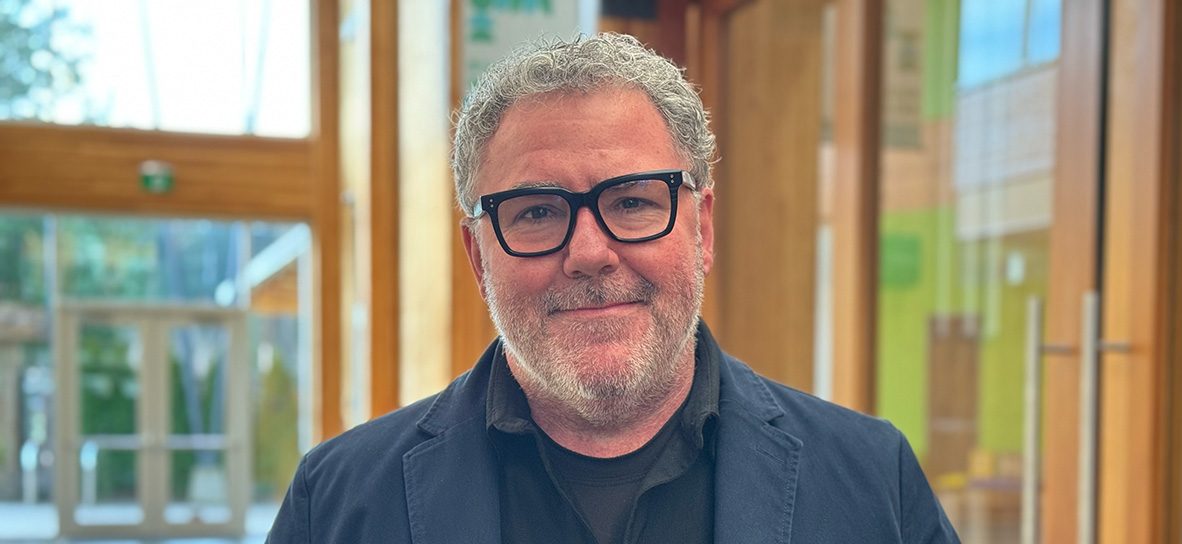Paul Thorkelsson has been on the job as the UNA’s Chief Administrative Officer now since late January. And while it’s a new role, the surroundings are familiar.
Thorkelsson studied at UBC in the early ‘90s, obtaining a graduate degree in architecture. He later completed a master’s degree in public administration from the University of Victoria and an executive management certificate from the B.C. Board of Examiners, which is considered the highest certification in local government in the province.
Announcing Thorkelsson’s appointment, the UNA said that Paul brings “a deep passion for good governance, transparency, fairness and diversity” and that he is excited about making a contribution to the UNA.
Thorkelsson previously held roles in private industry, in municipal government in B.C. and Alberta, as an elected official, and 11 years as a chief administrative officer in several municipalities including Saanich and Nanaimo.
“Paul’s interests and skills will help the UNA in its leadership and municipal-like role within the community amidst UBC’s rapid growth and development,” the UNA said.
The Campus Resident caught up with Thorkelsson to see how he’s settling into his new role.
You’ve lived here before. What are your initial thoughts on returning to the university neighbourhoods?
Remarkable changes to UBC have taken place since my time here as an undergrad and grad student in the 1990s. Walking around campus is both a familiar experience and exciting in new discoveries. The place is incredibly beautiful, exciting, energetic, and full of opportunity.
You have a diverse range of experience. How does working with small governments and organizations like the UNA compare with larger ones, and what attracts you most to this kind of work?
My reasons for working in local government have always been the fundamental focus on good governance and excellence in service delivery at the level of government that is most directly connected to the community and residents.
This is certainly no different for me in this role with the UNA. Many of the issues faced locally are very much like other communities both large and small. The significant difference is in the governance structure for the UNA, which is about as unique as it gets. This certainly presents complications but is also one of the aspects that particularly draws me to working with the UNA at this point in my career.
What do you expect to be some of the major challenges for the UNA in the short term, as well as the future?
Like any municipal-service focused organization, the short-term challenges for the UNA will stem from the balancing of expectations and service levels against the resourcing necessary to provide those services at adequate and expected levels. The demands for increased levels of service, more direct involvement/participation in decision-making and building our community, additional responsibilities and effective and efficient service delivery are evident now, and are unlikely to shrink in importance.
The medium and longer-term challenges for the UNA and residents will be building an understanding of, and managing, the shared nature of “municipal-like services” between UBC and UNA, and finding the ongoing balances of authorities, jurisdictions and responsibilities that best fit this unique and amazing community as it continues to grow.
In your opinion, what are some of the most attractive aspects of living and working in this community?
I think I said it earlier: the place is incredibly beautiful, exciting, energetic, and full of opportunity. As an architect, urban and rural planner, and municipal administrator, I see the UNA as embodying the qualities of urban living that many municipalities aspire to. There is a lot of discussion in strategic plans of municipalities across the province about the need and desire to build complete communities— places where citizens can live, work and play.
I don’t think there is another place that has the same opportunity to really push the reality of a what a complete community is, while respecting the place, the history of this place and its context of constant change (environmental, social and economical).
How far do you expect the Vancouver Canucks to go in this year’s playoffs?
I was born and raised in Edmonton. Even after 30-plus years as a resident of B.C., there is still only one NHL team whose playoff hopes matter. Sorry.
